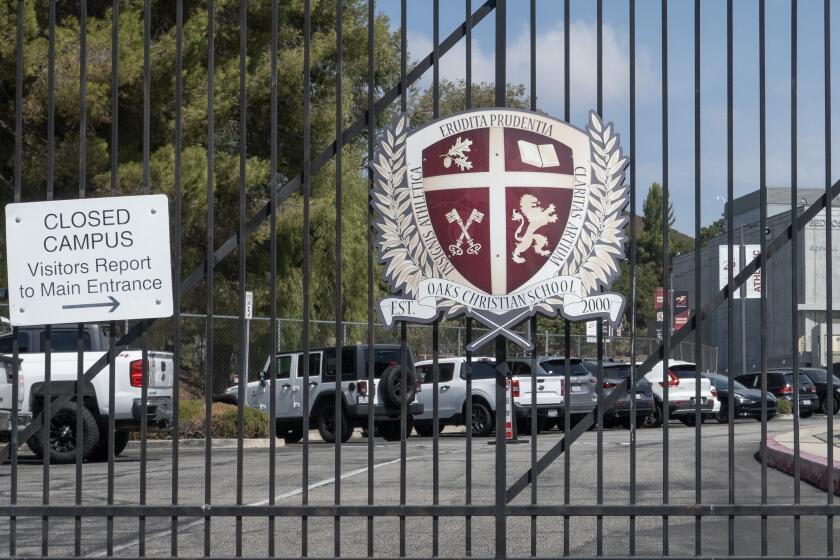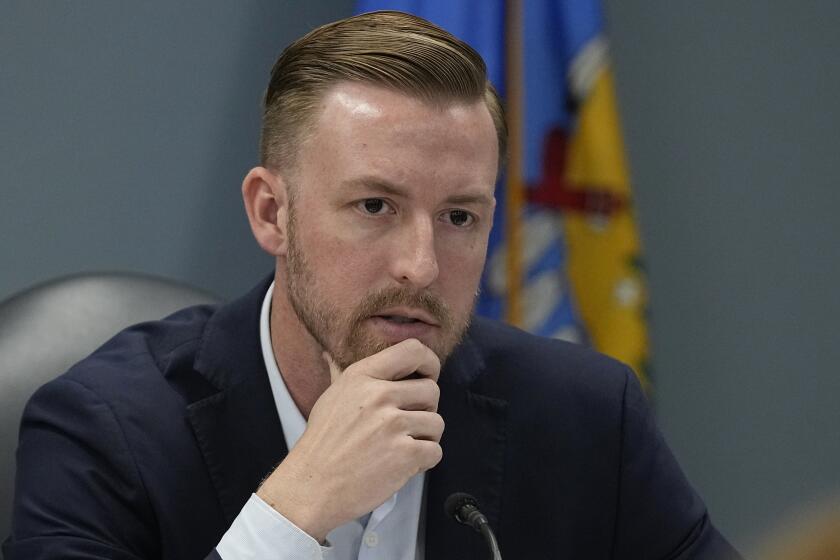Nobody Likes a Brainiac
Years ago I gave a guest presentation to a college public relations class about my experience as a volunteer writer and fundraiser for Habitat for Humanity. When I finished, the professor had a comment: “You teach high school? What a waste.”
He meant it as a compliment, but I didn’t take it as one. It betrayed an all-too-prevalent attitude. On the one hand, Americans say they value their teachers. A recent survey found that 62% of Americans consider teaching to be the profession that most benefits society, while only 22% named medicine. But, in fact, when people see articulate, poised and accomplished teachers in the classroom, they tend to wonder what’s wrong with them that they’re “only” teaching.
With that kind of attitude so pervasive, it’s no wonder that some of those attracted to teaching are less than competent. A Knight-Ridder report last summer found that California teachers are deplorably subpar in nearly two-thirds of the state’s public classrooms -- meaning that they are teaching subjects in which they do not hold degrees or teaching credentials or display “expertise.”
So why can’t the profession attract -- and retain -- more academically distinguished people? Allocation of resources is one obvious part of the problem. But there is a more insidious reason too. Despite the public clamor for “subject area mastery,” teachers face pervasive anti-intellectualism within the profession. Those who make the effort to earn advanced degrees often find their achievements ignored or subtly denigrated within school culture.
A case in point is a teacher with whom I worked for 11 years. Many of her colleagues rolled their eyes when she first asked students to call her “Doc” instead of “Mrs.” after she completed her PhD in English. Rather than being openly celebrated as a scholar who continued her career with young people in the public system, she was cast by a number of her co-workers as either an intellectual snob or as someone who was “missing out” because, even with an advanced degree, she had “settled” for teaching in high school instead of a college or university.
In the end, there’s little incentive for teachers to pursue advanced degrees in their subject areas. The Southern California school district in which I taught offers teachers a flat stipend of $750 a year for doctoral degrees from accredited universities. A new teacher has less incentive to get a doctorate than to sign on as assistant badminton coach: The latter pays a stipend of $1,563 annually. Extra pay for a teacher who coaches varsity football starts at $3,127.
No distinction is made between a degree in one’s field of expertise and a generalized degree “in education.” And teachers learn early that they will make significantly more money if they pursue studies in general education in order to leave their classrooms for administrative posts.
The salary schedule is structured to reward teachers for taking units, regardless of whether they form a coherent program. My former district, for example, awards a master’s degree the same amount of extra salary as any random 45 units taken beyond a bachelor’s.
Compounding the insult, there is no reward for attending classes at tougher schools. Diploma mills abound to provide teachers with easy -- if pricey -- ways to get additional units or advanced degrees.
It all adds up to a system that doesn’t serve students well. A new English teacher I worked with told me that she felt “underprepared” to teach English, especially grammar. But instead of taking additional classes in her subject area, she was pursuing a master of education degree in an expensive program she dismissed as “a joke.” Why? Because it was easier. “We don’t even have to write a paper anymore for one class,” she told me. “It was in the syllabus, but people actually whined, so the professor changed it.”
Americans may say they care about standards and accountability in education, but the school boards they elect and the districts those boards oversee send a different message.
After teaching for 11 years, during which I earned a master’s degree in English on my own time, I wanted to take a leave from the classroom and accept a university fellowship to research and write about teaching. At first, I received a verbal thumbs-down on my request for unpaid leave. Then I received by mail two contradictory documents from the school district: The first said my request had been granted, but the second said it had not. At the end of the summer, a third letter came announcing that my request was “expected to be approved” at an August board meeting.
In a better system, we educators who improve ourselves would be praised for honors received and initiative taken. We would be actively encouraged to stay in (or return to) teaching after fellowships or degree programs. We would become valuable resources for other teachers. We might actually be funded by our districts for taking more time to distinguish ourselves as practitioners of the disciplines we teach. Like lawyers and doctors, we would proudly post diplomas in view of those we serve. But we’ve learned not to expect encouragement or congratulations.
When I opened a fourth envelope last September announcing that my fellowship leave had been approved, I slipped the letter into a manila folder for safekeeping. It may be the closest thing to congratulations I’ll get.
More to Read
Sign up for Essential California
The most important California stories and recommendations in your inbox every morning.
You may occasionally receive promotional content from the Los Angeles Times.










